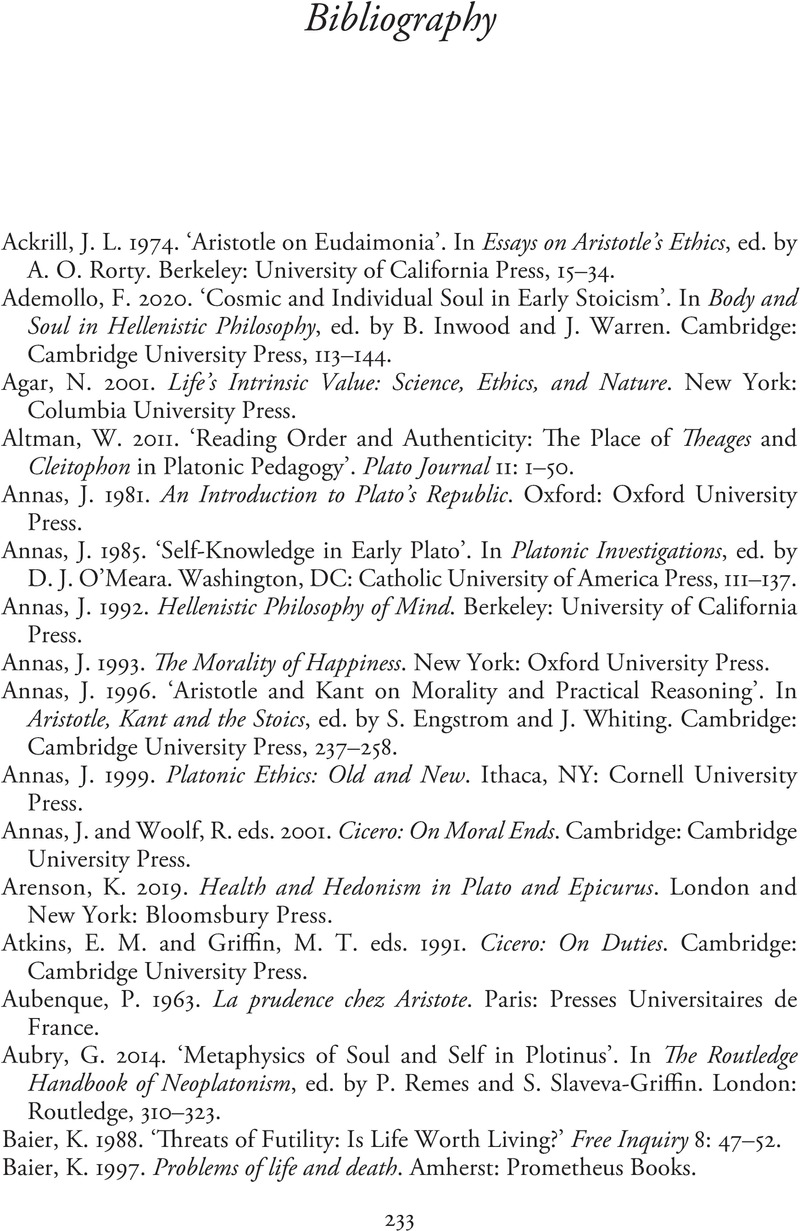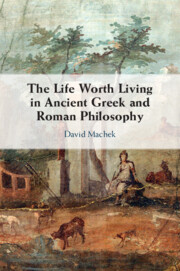Book contents
- The Life Worth Living in Ancient Greek and Roman Philosophy
- The Life Worth Living in Ancient Greek and Roman Philosophy
- Copyright page
- Dedication
- Epigraph
- Contents
- Acknowledgements
- Abbreviations
- Introduction
- Chapter 1 Plato on Making Life Worth Living by Doing One’s Job
- Chapter 2 Aristotle on the Natural Goodness of Life
- Chapter 3 Decoupling Happy Life from Life Worth Living in Stoicism
- Chapter 4 Threshold Nears the Target: Hellenistic Hedonists on the Life Worth Living
- Chapter 5 Peripatetics on Vicious Humans and Caged Animals
- Chapter 6 Plotinus on the Worth of Embodied Existence
- Conclusions
- Bibliography
- Index Locorum
- Subject Index
- References
Bibliography
Published online by Cambridge University Press: 29 April 2023
- The Life Worth Living in Ancient Greek and Roman Philosophy
- The Life Worth Living in Ancient Greek and Roman Philosophy
- Copyright page
- Dedication
- Epigraph
- Contents
- Acknowledgements
- Abbreviations
- Introduction
- Chapter 1 Plato on Making Life Worth Living by Doing One’s Job
- Chapter 2 Aristotle on the Natural Goodness of Life
- Chapter 3 Decoupling Happy Life from Life Worth Living in Stoicism
- Chapter 4 Threshold Nears the Target: Hellenistic Hedonists on the Life Worth Living
- Chapter 5 Peripatetics on Vicious Humans and Caged Animals
- Chapter 6 Plotinus on the Worth of Embodied Existence
- Conclusions
- Bibliography
- Index Locorum
- Subject Index
- References
Summary

- Type
- Chapter
- Information
- The Life Worth Living in Ancient Greek and Roman Philosophy , pp. 233 - 246Publisher: Cambridge University PressPrint publication year: 2023

